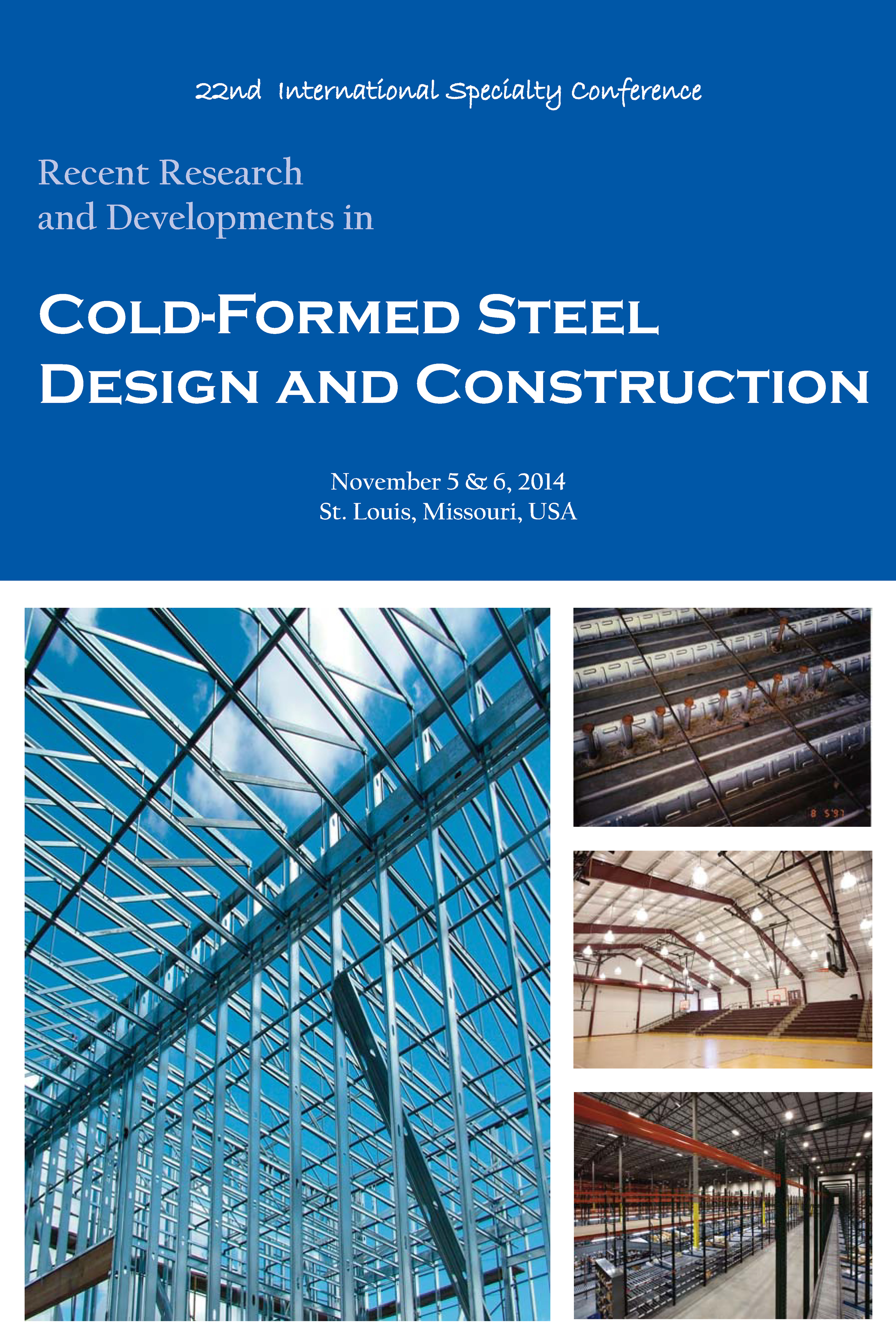Session Dates
06 Nov 2014
Keywords and Phrases
Finite Element Method; Cold-Formed Steel Perforated Columns; Axial Compression; Distortional-Flexural Buckling Interaction
Abstract
This paper presents a numerical investigation on the influence of diagonal bracing restraint on cold-formed steel perforated columns subjected to axial compression. Finite element method (FEM) is employed to analyse the structural behaviour of perforated columns. The results obtained from the present study highlight the influence of diagonal bracing restraint on post-buckling of columns, and the distortional-flexural mode interaction is also discussed. Furthermore, the accuracy of the present model is validated by comparing the results against the available experimental data.
Department(s)
Civil, Architectural and Environmental Engineering
Research Center/Lab(s)
Wei-Wen Yu Center for Cold-Formed Steel Structures
Sponsor(s)
WAP Shanghai Ltd.
Meeting Name
22nd International Specialty Conference on Cold-Formed Steel Structures
Publisher
Missouri University of Science and Technology
Document Version
Final Version
Rights
© 2014 Missouri University of Science and Technology, All rights reserved.
Document Type
Article - Conference proceedings
File Type
text
Language
English
Recommended Citation
Ren, Chong and Zhao, Xianzhong, "Influence of Diagonal Bracing Restraint on Cold-Formed Steel Perforated Columns under Axial Compression" (2014). CCFSS Proceedings of International Specialty Conference on Cold-Formed Steel Structures (1971 - 2018). 2.
https://scholarsmine.mst.edu/isccss/22iccfss/session08/2
Influence of Diagonal Bracing Restraint on Cold-Formed Steel Perforated Columns under Axial Compression
This paper presents a numerical investigation on the influence of diagonal bracing restraint on cold-formed steel perforated columns subjected to axial compression. Finite element method (FEM) is employed to analyse the structural behaviour of perforated columns. The results obtained from the present study highlight the influence of diagonal bracing restraint on post-buckling of columns, and the distortional-flexural mode interaction is also discussed. Furthermore, the accuracy of the present model is validated by comparing the results against the available experimental data.



